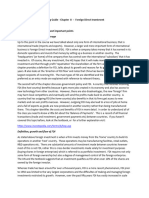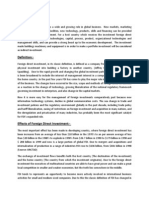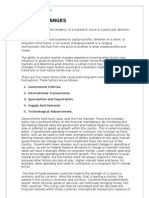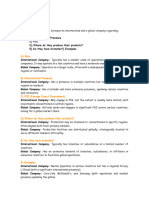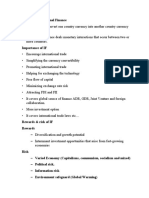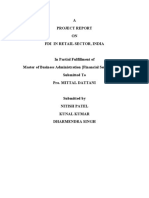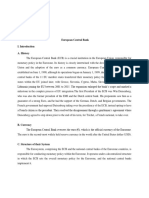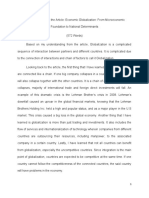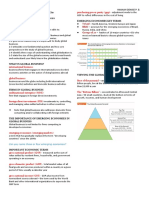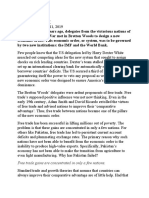0% found this document useful (0 votes)
225 views5 pagesFDI and Trade Balance
The document discusses the importance of foreign direct investment (FDI) for both businesses and countries' economic growth. It provides an example of Apple investing $507.1 million in China in 2017, fueling China's economy. FDI stimulates economic growth by providing capital, opening factories that employ local workers, and transferring technology and business practices. This improves living standards and makes the recipient country's industries more efficient. The document concludes that FDI helps developing countries transform economically by creating jobs, revenue, and competitive markets.
Uploaded by
Charlyn Jewel OlaesCopyright
© © All Rights Reserved
We take content rights seriously. If you suspect this is your content, claim it here.
Available Formats
Download as DOCX, PDF, TXT or read online on Scribd
0% found this document useful (0 votes)
225 views5 pagesFDI and Trade Balance
The document discusses the importance of foreign direct investment (FDI) for both businesses and countries' economic growth. It provides an example of Apple investing $507.1 million in China in 2017, fueling China's economy. FDI stimulates economic growth by providing capital, opening factories that employ local workers, and transferring technology and business practices. This improves living standards and makes the recipient country's industries more efficient. The document concludes that FDI helps developing countries transform economically by creating jobs, revenue, and competitive markets.
Uploaded by
Charlyn Jewel OlaesCopyright
© © All Rights Reserved
We take content rights seriously. If you suspect this is your content, claim it here.
Available Formats
Download as DOCX, PDF, TXT or read online on Scribd
/ 5






